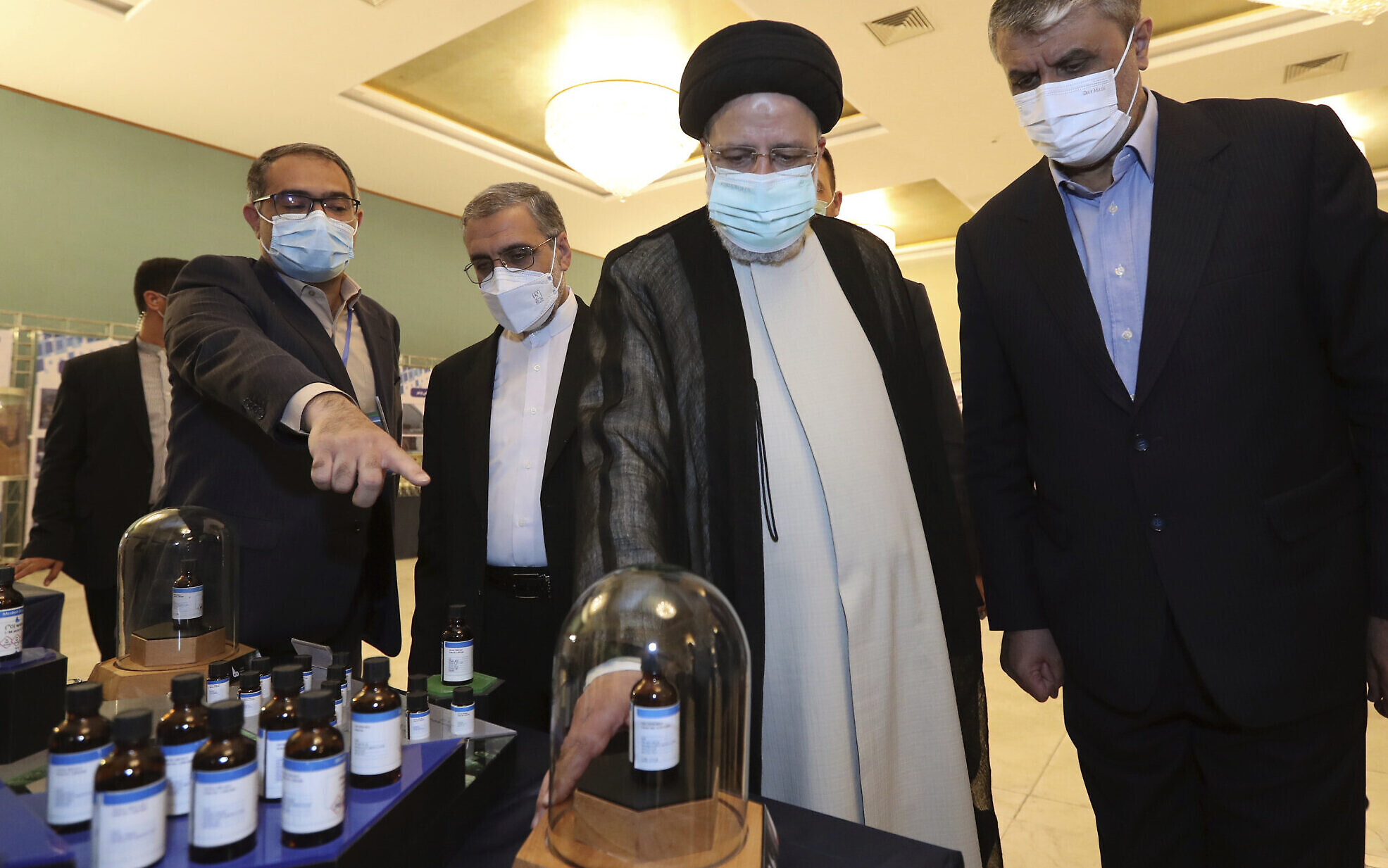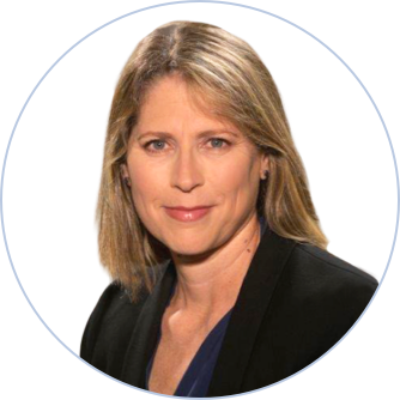Iran triples capacity for enriching uranium to 60%, near weapons grade, IAEA says
Iran has tripled its capacity to enrich uranium to 60 percent purity, the head of the UN nuclear watchdog agency said Friday, as Tehran remains at odds with the West over its nuclear program.
Uranium enriched to 60 percent purity is a short technical step away from weapons-grade levels of 90%.
Iran said last month that it had moved ahead on uranium enrichment that Western governments worry is part of a covered nuclear weapons program.
“Iran informed us they were tripling, not doubling, tripling their capacity to enrich uranium at 60%, which is very close to military level, which is 90%” the head of the International Atomic Energy Agency Rafael Grossi said at a press conference in Rome.
“This is not banal. This is something that has consequences. It gives them an inventory of nuclear material for which it cannot be excluded… that there might be another use. We need to go. We need to verify,” he said, according to Reuters.
Get The Times of Israel’s Daily Edition
by email and never miss our top stories
By signing up, you agree to the terms
Iran said last month that the enrichment was being carried out at its underground Fordo plant using advanced IR-6 centrifuges, and was a response to an IAEA resolution criticizing Tehran’s lack of cooperation with the nuclear watchdog.
Under the terms of its 2015 agreement with world powers, Iran is only permitted to enrich uranium to 3.67% purity. That deal gave Iran sanctions relief in return for curbs on its nuclear program to prevent the production of a weapon.
Rafael Grossi, director-general of the International Atomic Energy Agency, speaks to journalists after the IAEA’s board of governors meeting at the agency’s headquarters in Vienna, Austria, on November 16, 2022. (Joe Klamar/AFP)
The deal also called for Fordo to become a research and development facility and restricted centrifuges there, used to spin enriched uranium into higher levels of purity, to non-nuclear uses.
The US last month expressed “deep concern” over Iran’s progress on its nuclear program and ballistic missile capabilities.
“We’re going to make sure we have all options available to the president,” White House national security spokesman John Kirby said. “We certainly have not changed our view that we will not allow Iran to achieve a nuclear weapons capability.”
In a joint statement, Britain, France and Germany said Iran was moving “well beyond” limits set down in the Joint Comprehensive Plan of Action, the formal name of the 2015 deal.
By enriching uranium up to 60%, Iran was challenging global non-proliferation, they said.
“This step, which carries significant proliferation-related risks, has no credible civilian justification,” the European countries said.

In this photo released by the official website of the office of the Iranian Presidency, President Ebrahim Raisi, second right, receives an explanation while visiting an exhibition of Iran’s nuclear achievements in Tehran, Iran, April 9, 2022. (Iranian Presidency Office via AP )
Grossi also said Friday that Iran was still in conflict with the IAEA. The two sides have long been at odds as Iran has blocked inspectors from visiting suspicious sites and withheld information from the agency.
The IAEA is seeking an explanation from Iran for uranium traces that were discovered at three undeclared sites. The IAEA previously said Iran had agreed to allow UN inspectors to visit in November but the meeting has not taken place.
“We don’t seem to be seeing eye-to-eye with Iran over their obligations to the IAEA,” Grossi said. “We need to put our relationship back on track.”
The heavily protected Fordo planted around 110 miles (190 kilometers) south of Tehran was built deep underground in a bid to shield it from air or missile strikes by Iran’s enemies.
In September, Defense Minister Benny Gantz said the enrichment capacity had tripled at Fordo over the past year, months after Iran said it had begun enriching uranium to 20% purity at the plant.

This September 1, 2014 file photo, shows a nuclear research reactor at the headquarters of the Atomic Energy Organization of Iran. (AP Photo/Vahid Salemi, File)
Last month, Military Intelligence chief Maj. Gen. Aharon Haliva said Iran has made “significant progress” toward producing 90% enriched uranium.
“The moment is coming when the greatest test of the international community will come to light, when Iran entertains [the idea of] enrichment at 90%, even if only symbolically,” he said.
The IAEA reported in July that Iran had 43 kilograms of uranium enriched to 60% purity at other sites, enough fissile material for one nuclear weapon if Iran chose to pursue it.
However, Iran still would need to design a bomb and a delivery system for it, likely a months-long project.
Talks seeking to revive the nuclear deal have stalled, alongside international condemnation of Tehran’s heavy-handed response to domestic protests.
The deal collapsed after Washington’s unilateral withdrawal in 2018 under then-president Donald Trump.
Israel has long opposed the nuclear accord, saying it delayed rather than ended Iran’s nuclear progress and arguing that sanctions relief empowered Tehran’s proxy militias across the region, with expected incoming prime minister Benjamin Netanyahu coming out strongly against the deal.
Israeli politics told straight

I joined The Times of Israel after many years covering US and Israeli politics for Hebrew news outlets.
I believe responsible coverage of Israeli politicians means presenting a 360 degree view of their words and deeds – not only conveying what occurs, but also what that means in the broader context of Israeli society and the region.
That’s hard to do because you can rarely take politicians at face value – you must go the extra mile to present full context and try to overcome your own biases.
I’m proud of our work that tells the story of Israeli politics straight and comprehensively. I believe Israel is stronger and more democratic when professional journalists do that tough job well.
Your support for our work by joining The Times of Israel Community helps ensure we can continue to do so.
Thank you,
Tal Schneider, Political Correspondent
Join Our Community Join Our Community Already a member? Sign in to stop seeing this
You’re a dedicated reader

That’s why we started the Times of Israel ten years ago – to provide discerning readers like you with must-read coverage of Israel and the Jewish world.
So now we have a request. Unlike other news outlets, we haven’t put up a paywall. But as the journalism we do is costly, we invite readers for whom The Times of Israel has become important to help support our work by joining The Times of Israel Community.
For as little as $6 a month you can help support our quality journalism while enjoying The Times of Israel AD FREEas well as accessing exclusive content available only to Times of Israel Community members.
Thank you,
David Horovitz, Founding Editor of The Times of Israel
Join Our Community Join Our Community Already a member? Sign in to stop seeing this



Comments are closed.